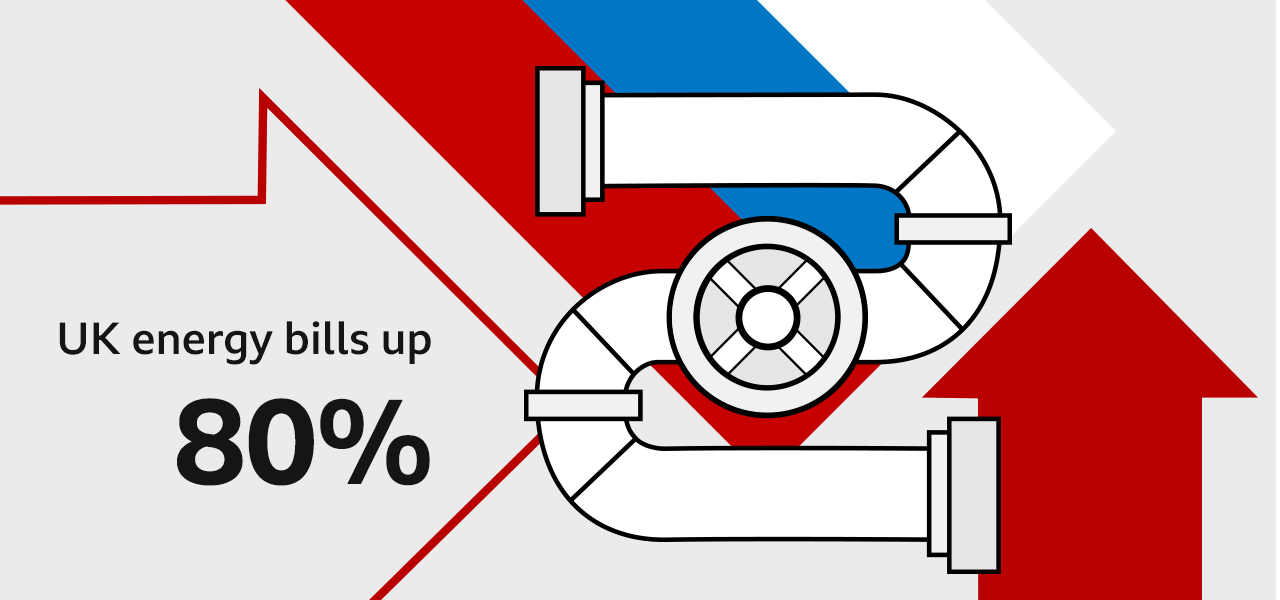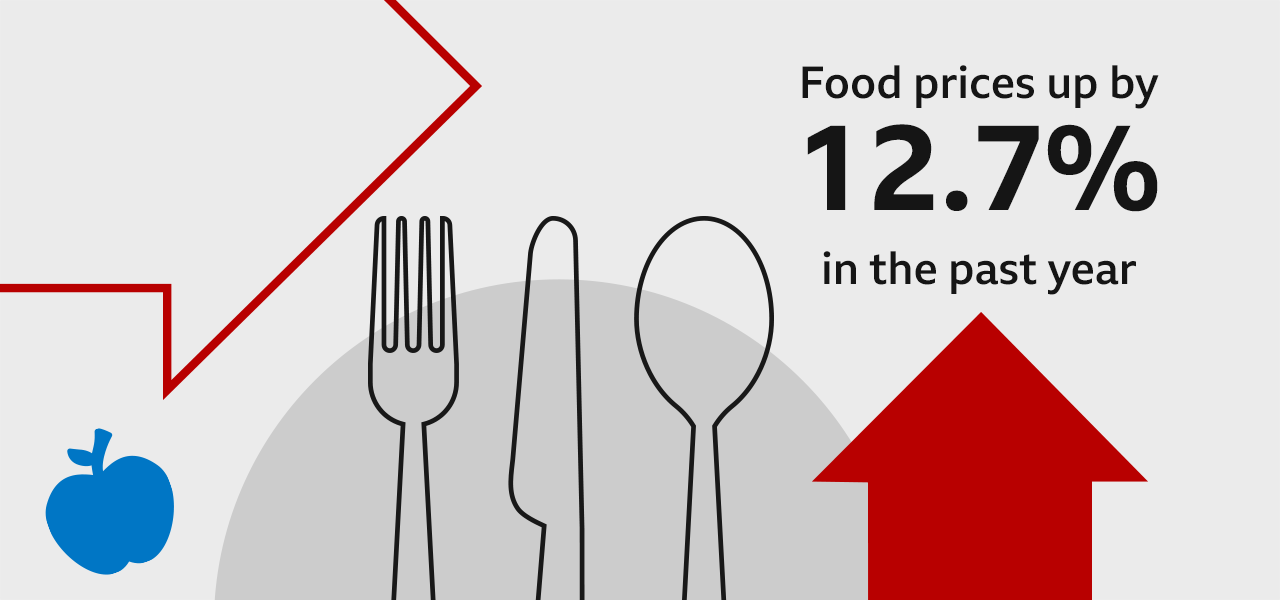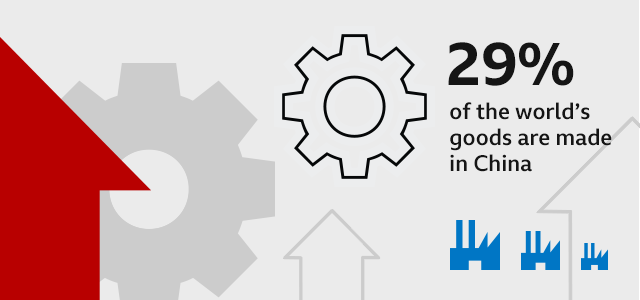Cost of living: What do Covid, war and drought have to do with my bills?
- Published

A long and painful recovery from Covid, war in Ukraine, droughts in many countries and tricky relations between the West and China - 2022 has seen one challenge after another facing the world.
These problems may appear to be unconnected, but they are all making one thing worse - the cost of living crisis.
How has the war in Ukraine hit prices?
Before it invaded Ukraine, Russia was supplying the European Union with 40% of its gas, making it Russia's largest customer.
However, after the war started, many European countries hit Russia with a range of penalties - known as sanctions - and promised to reduce their reliance on Russian energy.
Russia has since cut supplies to Europe - temporarily closing the main pipeline and deliberately burning off a large amount of gas. It denies using energy as a political weapon, but the effect has been to send prices soaring.
Despite importing little gas from Russia, the UK has also been hit hard by the sharp rise in world gas prices.

This is set to have a major impact on household energy bills. From 1 October, the amount companies can charge customers will jump by 80%. The bill for a typical household will hit £296 per month.
As well as energy, Russia's invasion has also affected food prices. Efforts to ship out 20 million tonnes of grain stuck in Ukraine are only just getting under way. Other food such as maize and sunflowers - used to make cooking oil - are also trapped.
With Ukraine's food unable to be shipped abroad, prices have soared in many countries. Wheat prices, for example, are up 25% since last year.
It's all contributed to rising food prices for UK shoppers which are up nearly 13% in the year to July, external. Products made from wheat - like bread, cereal and pasta - have had some of steepest price rises.
Why is Covid a cost of living problem?
Energy prices were on the rise even before Russia invaded Ukraine. The big problem was Covid.
During the pandemic, lockdowns forced many businesses to temporarily close. However, as countries started lifting restrictions, businesses got up and running again.
The sudden surge in demand for energy pushed up prices.
This had a knock-on-effect on the cost of all sorts of things people buy - from cars to computer chips and everything they are found in.
Watch: Ros Atkins On… How this year’s biggest stories connect
The shift to home-working also pushed up demand - and prices - as people needed things like work laptops or webcams.
Then, as firms tried to keep up with new orders, bottlenecks formed at busy ports.
Finding enough workers has also been a problem for some firms. Businesses like pubs, restaurants and hotels let people go during the pandemic, but have struggled to attract them after reopening.
It has all contributed to rising prices for customers.
What does climate change have to do with prices?
Climate change is expected to cause more frequent extreme weather events around the world.
Drought is currently affecting Europe and China, while Pakistan is suffering from extreme flooding.
Spain, for example, produces half of the world's supply of olive oil and has been hit by its worst ever recorded drought.

Producers say shoppers are already paying a third more for olive oil than last year and warn the drought will increase prices even more.
In Italy, tomato crops and wheat used to make pasta have also been affected by extreme weather.
It's not just a problem for food supplies.
Droughts can also lead to rivers, lakes and reservoirs drying up.
This can lead to lower hydroelectric power - a form of renewable energy harnessed from flowing water.
Italy, for example, gets around a fifth of its energy from hydro, but that's fallen by about 40% in the past 12 months. Droughts have also caused power cuts in China.
The effect can be to increase demand for other types of fuel - putting even more pressure on prices.

Find out more about why food prices are on the rise.
Watch now on BBC iPlayer (UK only).

What does China have to do with inflation?
More than a quarter of the world's goods are made in China, external.
But it has not been an easy year for its factories - and the customers in other countries who buy what they make.
Frequent factory closures have been caused by Covid outbreaks, energy shortages, heatwaves and droughts.
As a result, China has not always been able to keep up with demand. When China faces difficulties it has a domino effect around the world.

China's growing need for fuel is also putting further pressure on global energy prices.
It has also formed a closer relationship with Russia - buying up more of its oil in recent months.
This has made it harder for the west to isolate Russia through economic penalties.
Related topics
- Published22 September 2022

- Published26 August 2022

